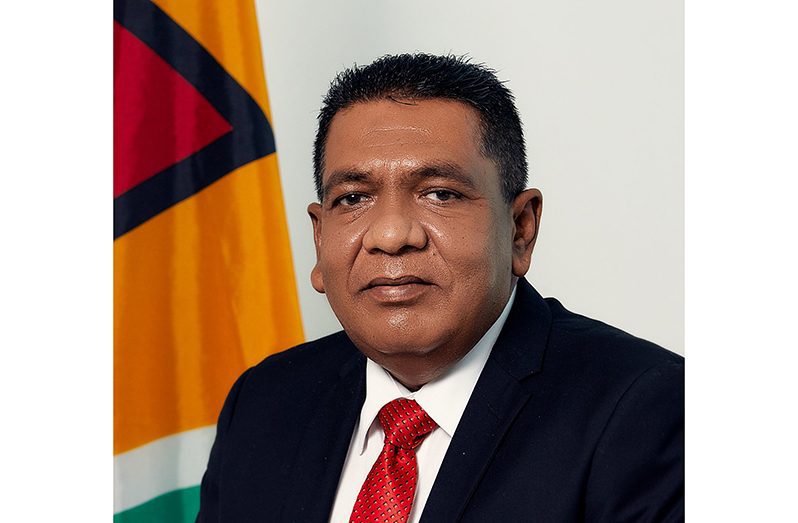–almost 500 local farmers turn to poultry in last four months
GUYANA’S livestock industry has been a key component of this country’s agricultural sector, satisfying local demand and generating revenue from regional and foreign markets, but there is scope for further development and advancement, and this potential has piqued the interest of investors from the United Arab Emirates (UAE).
Agriculture in Guyana accounts for approximately 50 per cent of foreign exchange earnings, generates about 20.6 per cent of the national Gross Domestic Product (GDP) and employs approximately 40 per cent of the labour force.

The livestock sub?sector contributes approximately 13.6 per cent of the agricultural GDP and 2.8 per cent of the total GDP. Livestock is commonly defined as domesticated animals raised in an agricultural setting to produce labour and commodities such as meat, eggs and milk, among other things.
Guyana, with a large expanse of land for advancement in livestock production and a business-friendly environment, has attracted investors from the UAE who have indicated their interest to invest here.
“I have spoken to investors who want to come and invest in livestock…I did a presentation recently to the Dubai [UAE] team that came to Guyana and I think they are very interested in coming to invest in the poultry and livestock industry, especially the goat industry in our country,” Minister of Agriculture Zulfikar Mustapha said during a recent interview with the Guyana Chronicle.
This willingness to invest in livestock, as said by the minister, was initially expressed by members of the eight-member delegation from the UAE, which visited Guyana in November this year. The team led by his Highness, Sheikh Ahmed Dalmook Al Maktoum of Dubai, met with President Dr. Irfaan Ali and senior government officials, and held discussions on oil and gas; infrastructure and agriculture.
The UAE, as reported by international media, has a significant wealth of livestock. The total number of camels in the country is estimated at 450,000, while sheep and goat herds are estimated at about five million, thus, constituting an important component of both food security and the national economy.
The Government of Guyana had announced recently that in order to ensure that all inputs into agriculture and livestock production are made affordable, there will be no Value Added Tax (VAT) on fertilisers, agrochemicals, pesticides and key inputs in the poultry sector including poultry feed, building materials and packaging. The government also gave the poultry industry zero-rated VAT status.
This has since served as an impetus for investors, both local and foreign, who are interested in “setting up shop.”
“We are seeing more large-scale farmers coming on stream in poultry…a number of small farmers are also coming on board,” Minister Mustapha said.
Based on available information, the poultry industry has recorded a stark increase over the past four months, with about 500 new farmers getting into the industry.
This increased interest in the industry augurs well for Guyana, Minister Mustapha said, adding that it will supplement the growth stemming from the country’s oil-and-gas sector.
“Over the next few years we will see development and increase in this sector…with oil and gas coming on board, we will have more opportunities to market our produce. There are already plans to set up state-of-the-art abattoirs across the country, starting with Wales and West Coast Berbice,” the minister said.
In 2018, production of poultry meat in Guyana was 46,322 tonnes. Production of poultry meat of Guyana increased from 5,500 tonnes in 1969 to 46,322 tonnes in 2018 growing at an average annual rate of 7.22 per cent.
In this region, the Food and Agriculture Organization (FAO) has predicted that the demand for food will increase 50 per cent by 2030 and 70 per cent by 2050. And, according to the FAO, livestock production constitutes a very important component of the agricultural economy of developing countries, a contribution that goes beyond direct food production to include multipurpose uses, such as skins, fibre, fertiliser and fuel, as well as capital accumulation.
Furthermore, livestock are closely linked to the social and cultural lives of several million resource-poor farmers, for whom animal ownership ensures varying degrees of sustainable farming and economic stability.
All categories of livestock have increased in number over the years, with a much greater increase for monogastric animals (pigs and poultry) than for ruminants, said the FAO. Ruminant populations have grown at about half the rate of the human population, while small ruminant populations (sheep and goats) have increased only in developing countries.
The pig and poultry populations, however, have grown about one-and-a-half to two times that of the human population, and are three to four times greater in developing countries than they are in developed countries.
“The world population is expected to increase from 5.4 billion to at least 7.2 billion within the next two decades, mainly in developing countries. This increase in human population, with the resulting increase in pressure on land and changes in composition of the livestock population, will have a major effect on both available natural resources and future demand for commodities, and this will consequently determine the type of livestock feeding and production systems to be adopted,” the FAO said.
Official statistics tend to underestimate the overall contribution of animals, since they generally underestimate or ignore the multipurpose role livestock play in food and agricultural production, as well as in the social life of small-scale farmers in developing countries




.png)









